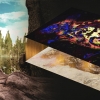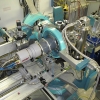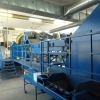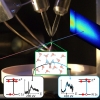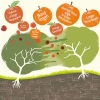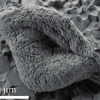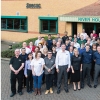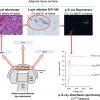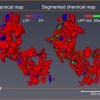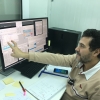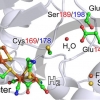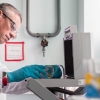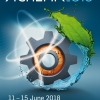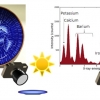News
X-ray Spectrometry News
X-ray imaging reveal an extinct mouse had brown to reddish fur on its back and sides and had a tiny white tummy.
The ABS Trust is seeking applications for the Gordon F. Kirkbright bursary award and the new Edward Steers bursary, both open to early career scientists.
The XMaS beamline at the European Synchrotron Radiation Facility is to undergo a major upgrade over the next 18 months.
A new sensor fusion technique based on X-ray and 3D imaging promises improvements to the 3D modelling of mineral resources and more efficient sorting of precious metals.
A table-top, laser-based extreme high-order harmonic source for short-pulse soft-X-ray absorption spectroscopy in the water window has been combined with novel flatjet technology for simultaneous probing of carbon and nitrogen atoms in organic molecules in aqueous solution.
Machine learning techniques using a combination of the layer clustering and decision tree methods aids prediction of spectra.
Using spectroscopic techniques including Raman and XANES, 3.4 billion year old microfossils from Western Australia’s Strelley Pool formation have been shown to be chemically similar to modern bacteria. This all but confirms the biological origins of the fossils and ranks them among the world’s oldest.
Applications for this prestigious award are invited by 30 November 2018.
Specac has won the Queen’s Award for International Trade.
Synchrotron analysis using X-ray spectroscopies shows potentially harmful metals from implants can find their way into human organs.
A combination of synchrotron techniques at the UK’s Diamond Light Source is being used to research the effect of conservation choices on corrosion of iron cannonballs from the Tudor warship, Mary Rose.
A coherent, nanoscale beam of X-rays from a synchrotron source have been used to map chemical reactions happening inside lithium-ion batteries in three dimensions at the nanoscale.
XRF study shows that the plastic used in many second-hand toys could pose a risk to children’s health.
The SESAME light source in Jordan has seen First Monochromatic Light through the XAFS/XRF spectroscopy beamline.
Nuclear resonant vibrational spectroscopy, a new X-ray spectroscopy technique has been used to study enzymes that can produce hydrogen gas, the understanding of their reactions could be important in developing a clean-fuel economy powered by hydrogen.
New office expansion enables Rigaku to grow in Europe with well-equipped application development and demonstration facility.
Enamelled drinking glasses and popular merchandise can contain potentially toxic levels of lead and cadmium, a study has shown.
Achema 2018 is inviting contributions to the Achema Congress and the PRAXISforums; deadline 22 September 2017.
A cooperation between Messe München India and the Indian Pharma Machinery Manufacturers Association (IPMMA) will collocate events jointly representing 600+ global and Indian companies.
A Japanese research group has developed new techniques to perform analysis and imaging of chemical elements by taking images of a target material using an ordinary, visible-light digital camera with a slight modification, and obtaining X-ray spectra from processed images.

